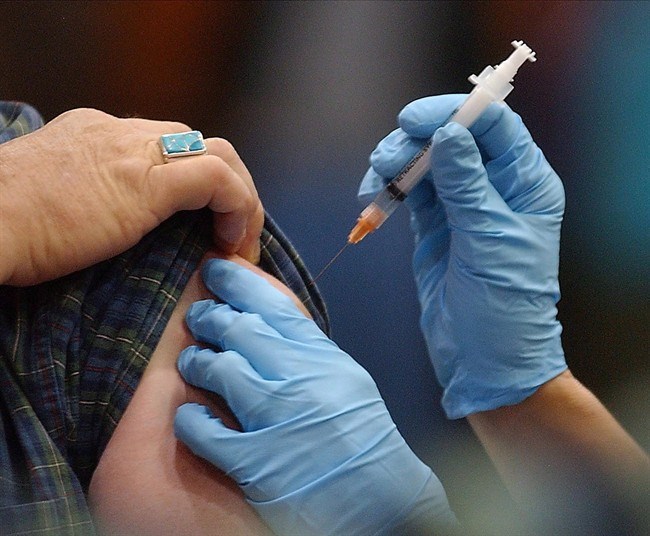Flu season is almost here and doctors are reminding people to consider getting vaccinated.
Australia, where winter just ended, is wrapping up one of its worst flu seasons on record, fuelling concerns that North America might be facing an especially tough season ahead.
But Dr. Meena Dawar, the medical health officer with Vancouver Coastal Health, said it is difficult to predict what the upcoming flu season will look like because influenza illness can vary from country to country in the Southern Hemisphere.
Australia, for example, was hit with the H3N2 strain that causes illnesses in the elderly, while H1N1, which affects young children and pregnant women more, was the leading influenza virus in South America.
“What we can tell you is that influenza season is coming,” said Dawar. “While it’s still early, it’s important to remind folks that flu season is just around the corner. Vaccines should be available in the next month or so, and it’s important to consider being immunized.”
B.C. typically sees three types of influenza viruses: Influenza A H1N1, influenza A H3N2, and influenza B. The peak of flu illnesses is usually mid-December to the end of January.
Last season was an unusual one, said Dawar. Doctors saw a first wave of illness from the H1N1 virus, followed by a second peak from H3N2.
“It’s quite unusual to have two different peaks.”
In B.C. influenza vaccine coverage rates have remained fairly consistent among seniors at around 60 to 70 per cent. The vaccine coverage rate is lower among adults under 65, even among those with underlying health conditions or at high-risk of complications from the flu.
“I expect it is because they don’t know the risk of influenza and the benefits of the vaccine,” said Dawar.
A recent Insights West poll commissioned by London Drugs found that 36 per cent of British Columbians planned to skip the flu shot this year. Reasons provided by respondents included concern over side effects, the belief healthy people don’t need the vaccine, and doubts over whether the vaccine works.
Dawar says there has been a long-standing recommendation on the flu vaccine and insists that it’s safe.
“We know how they work, we know how they protect, and we know their side effects,” which, in a small proportion of people, include a sore arm and muscle aches and pains, she said.
Severe allergic reactions are rare at one in a million and flu shots do not use a live vaccine, so they cannot cause influenza, said Dawar.
A nasal spray vaccine that uses a weakened form of influenza virus would not be available in Canada this year because of a shortage of an active ingredient.
According to the Public Health Agency of Canada, which conducts annual surveys through telephone interviews, vaccine coverage in 2017-2018 among adults is about 38 per cent — a slight increase from 34 per cent in 2015-2016. The majority of Canadians received their vaccine in October and November.
Among seniors, considered a high-risk group, close to 71 per cent received the flu shot, below the national target of 80 per cent. Among adults aged 18 to 64 with certain chronic medical conditions, the coverage rate is 39 per cent.
The B.C. Centre for Disease Control said the vaccine will be available to high-priority populations, including people with underlying medical conditions, long-term care facility residents, and health care workers, starting in early October.
Large public clinics will begin offering the vaccine in early November.



